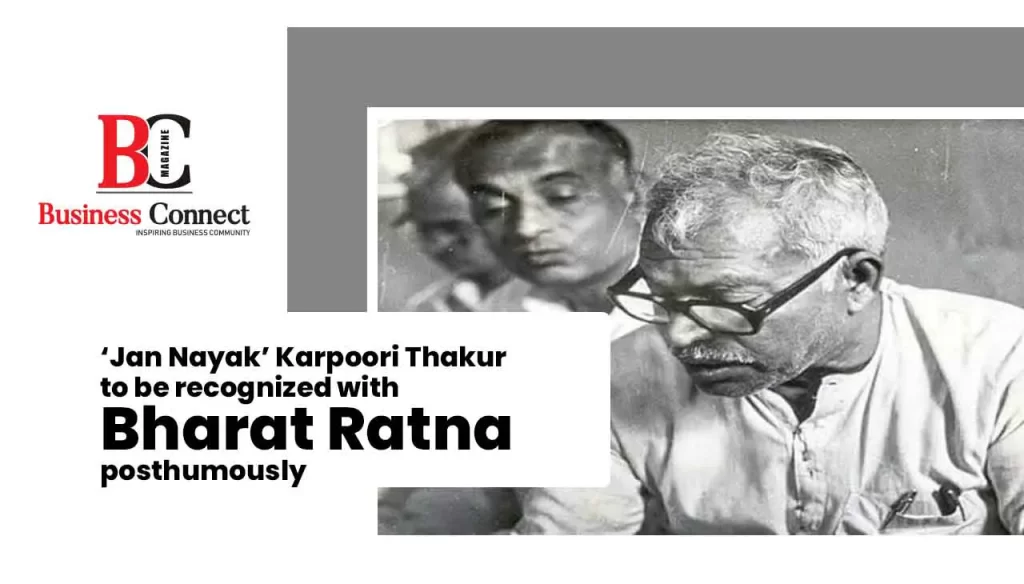Jan Nayak’ Karpoori Thakur to be recognized with Bharat Ratna posthumously
The whole country is conversing about the prestigious Bharat Ratna being conferred on former Bihar Chief Minister, Karpoori Thakur. This move led by Bharatiya Janata Party (BJP) posthumously made headlines across the globe. This announcement was released on the occasion of Thakur’s 100th birth anniversary.
As per the authorities, the motive is to mark a recognition of his incredible contributions to empowering the social and political scenarios in the country. The bulletin has stirred mixed reactions from Bihar’s political landscape, with all parties, including the Rashtriya Janata Dal (RJD).
A brief of the dignitary
Late Karpoori Thakur was a prominent socialist leader. He is one of the most influential figures in Indian political history known for championing the cause of the most backward classes. His major contributions include reserving seats for marginalized sections, including women and economically weaker segments. He laid the foundation for inclusive politics well before the Mandal politics of the 1990s.
This decision was heartily welcomed by Chief Minister Nitish Kumar and his party, Janata Dal (United) (JD(U)) as the party had been demanding it for quite a long time. And now, the Mahagathbandhan, a political alliance of the RJD and JD(U), could be seen taken aback by this unexpected move. Now, the alliance is struggling to respond adequately to the recognition bestowed upon the departed visionary leader.
Let’s dive into the fact that political leaders like Lalu Yadav and Nitish Kumar, along with several others from the Hindi heartland, were considered the disciples of Karpoori Thakur. They all imbibed the principles of the socialist movement of the 1970s under his guidance.
This recognition symbolizes a tribute to Thakur’s enduring legacy and the deep impact he made concerning the political landscape in the land of Bihar. Talking of his background, Karpoori Thakur came from a community called Nai-Thakur, which was considered extremely backward.
He was one of the first people from his village to have completed his basic education and his political journey commenced during India’s fight for independence. Later, he actively participated in Sahajanand Saraswati’s Kisan movement, contributing significantly to the political landscape of Bihar.



